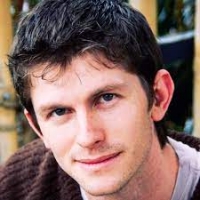Flute Sheet Music
 "I write music with an exclamation point!" William Shakespeare
"I write music with an exclamation point!" William Shakespeare
Joaquin Rodrigo
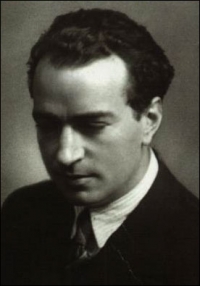
Joaquín Rodrigo Vidre, Marqués de los Jardines de Aranjuez, (Sagunto (Spain) 22 November 1901 – Madrid (Spain) 6 July 1999), was a composer of classical music and a virtuoso pianist. Despite being nearly blind from an early age, he achieved great success. Rodrigo's music counts among some of the most popular of the 20th century, particularly his Concierto de Aranjuez, considered one of the pinnacles of the Spanish music and guitar concerto repertoire.
Debussy

Achille-Claude Debussy (August 22, 1862 – March 25, 1918) was a French composer. Along with Maurice Ravel, he is considered one of the most prominent figures working within the field of Impressionist music, though he himself intensely disliked the term when applied to his compositions. Debussy was not only among the most important of all French composers but also was a central figure in all European music at the turn of the twentieth century.
Debussy's music virtually defines the transition from late-Romantic music to twentieth century modernist music. In French literary circles, the style of this period was known as Symbolism, a movement that directly inspired Debussy both as a composer and as an active cultural participant.
Debussy's music virtually defines the transition from late-Romantic music to twentieth century modernist music. In French literary circles, the style of this period was known as Symbolism, a movement that directly inspired Debussy both as a composer and as an active cultural participant.
Alejandro García Caturla
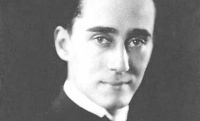
Alejandro García Caturla (7 March 1906 – 12 November 1940) was a Cuban composer of art music and creolized Cuban themes.Caturla was born in the town Remedios (Villa Clara, Cuba). With only sixteen years old, in 1922, he won a position as part of the section of the 2nd violins of the newly formed “Orquesta Sinfónica de La Habana”, where Amadeo Roldán was the concertmaster. He started to write music since he was a teenager, while studying both music and law. He felt attracted to Afro-Cuban rhythms since he was really young, and this became a common denominator in his compositions in a time when the division between art music and popular music did not influence Cuban composers. From 1925 to 1927 he continued his musical studies in Paris as a student of Nadia Boulanger.
Niccolò Jommelli
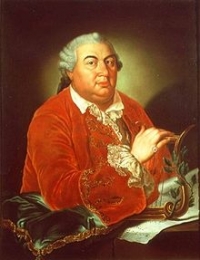
Niccolò Jommelli (10 September 1714 – 25 August 1774) was an Italian composer. He was born in Aversa and died in Naples. Along with other composers mainly in the Holy Roman Empire and France, he made important changes to opera and reduced the importance of star singers.
Francesco Barsanti
Francesco Barsanti (1690–1775) was an Italian flautist, oboist and composer. He was born in 1690 in the Tuscan city of Lucca, but spent most of his life in London and Edinburgh.Very little is known about Barsanti's background. His father may or may not have been the opera librettist Giovanni Nicolao Barsanti (Il Temistocle) but this has never been proved. He studied law in Padua as a young man, but abandoned it to pursue a career in music. In 1714 Barsanti emigrated to London with Francesco Geminiani, another musician from Lucca who was several years his senior. He played oboe and recorder, and soon obtained a post in the opera orchestra at the Haymarket where Handel's operas were being produced. Nerici reports that he returned briefly to Lucca in 1717 and again in 1718 to play in the Festival of the Holy Cross, 'for a very high salary.'[3
Eric Ewazen
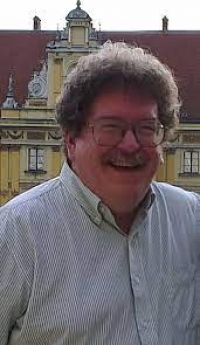
Eric Ewazen (/ɪˈweɪzən/; born March 1, 1954, Cleveland, Ohio) is an American composer and teacher.Ewazen studied composition under Samuel Adler, Milton Babbitt, Gunther Schuller, Joseph Schwantner, Warren Benson, and Eugene Kurtz at the Eastman School of Music and The Juilliard School (where he received numerous composition awards, prizes, and fellowships). He has been on the faculty of The Juilliard School since 1980, and has been a lecturer for the New York Philharmonic's Musical Encounters Series. He has also served on the faculties of the Hebrew Arts School and the Lincoln Center Institute. He served as Vice President of the League of Composers – International Society for Contemporary Music from 1982–1989, and was also composer-in-residence for the Orchestra of St. Luke's.
Nelson Ayres
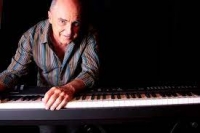
Nelson Ayres is a prominent Brazilian arranger/pianist/composer who has performed/recorded with Dizzy Gillespie, Benny Carter, Milton Nascimento, César Camargo Mariano, Chico Buarque, Simone, Dori, and Nana Caymmi, and others.
Alessandro Marcello
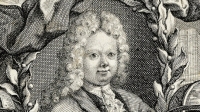
Alessandro Ignazio Marcello (1st February 1673 in Venice – 19 June 1747 in Venice) was an Italian nobleman, poet, philosopher, mathematician and musician.
Marcel Moyse
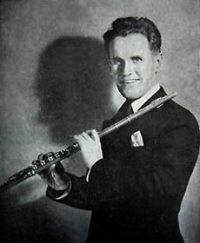
Marcel Moyse (pron. moh-EEZ; May 17, 1889 in St. Amour, France – November 1, 1984 in Brattleboro, Vermont, United States) was a French flautist. Moyse studied at the Paris Conservatory and was a student of Philippe Gaubert, Adolphe Hennebains, and Paul Taffanel; all of whom were flute virtuosos in their time. Moyse played principal flute in various Paris orchestras and appeared widely as a soloist and made many recordings. His trademark tone was clear, flexible, penetrating, and controlled by a fast vibrato. This was a characteristic of the ‘French style’ of flute playing that was to influence the modern standard for flutists worldwide.
Music theory

Music theory is the study of the practices and possibilities of music. The Oxford Companion to Music describes three interrelated uses of the term "music theory"
Serban Nichifor
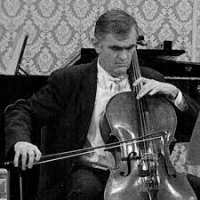
Șerban Nichifor OCB (born 25 August 1954) is a Romanian composer, cellist and music educator.Șerban Nichifor was born on 25 August 1954 to Ermil Nichifor (1916–1997) and Livia Nichifor, née Balint (1922–2017) in Bucharest, Romania. Both his parents were physicians. His father was also a musician and conductor of the Orchestra of Physicians in Bucharest.
Traditional

north royalton community band

The North Royalton Community Band was founded in 1998 and has grown to become a
well-rounded concert organization within a very short time. NRCB performs four to five scheduled concerts each year along with other special event concerts, playing a wide variety of music from marches to overtures, Broadway to Hollywood, classics to contemporary. All of our concerts are free and open to the public.
well-rounded concert organization within a very short time. NRCB performs four to five scheduled concerts each year along with other special event concerts, playing a wide variety of music from marches to overtures, Broadway to Hollywood, classics to contemporary. All of our concerts are free and open to the public.
Edgar Meyer
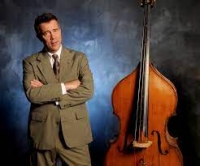
Edgar Meyer is an American bassist and composer. His styles include classical, bluegrass, newgrass, and jazz. He has won five Grammy Awards and been nominated seven times. Meyer is a member of the Telluride Bluegrass Festival's "house band" super group, along with Bush, Fleck, Douglas, Duncan, and Bryan Sutton
André Jolivet
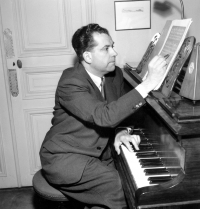
André Jolivet (pronounced ; 8 August 1905 – 20 December 1974) was a French composer. Known for his devotion to French culture and musical thought, Jolivet drew on his interest in acoustics and atonality, as well as both ancient and modern musical influences, particularly on instruments used in ancient times. He composed in a wide variety of forms for many different types of ensembles.
Benjamin Tubb

Benjamin Tubb. Born in 1988, Ben has always had an active interest in music, learning piano from an early age, and later the cornet and tenor horn.
Tetris

Tetris (Russian: Тетрис ) is a tile-matching video game created by Russian software engineer Alexey Pajitnov in 1984. It has been published by several companies, most prominently during a dispute over the appropriation of the rights in the late 1980s. After a significant period of publication by Nintendo, the rights reverted to Pajitnov in 1996, who co-founded The Tetris Company with Henk Rogers to manage licensing.
Carl Reinecke
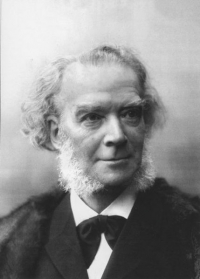
Carl Heinrich Carsten Reinecke (June 23, 1824 – March 10, 1910) was a German composer, conductor, and pianist.
Reinecke is best known for his flute sonata "Undine", but he is also remembered as one of the most influential and versatile musicians of his time. He served as a teacher for 35 years, until 1902. His students included Edvard Grieg, Basil Harwood, Christian Sinding, Leoš Janáček, Isaac Albéniz, Johan Svendsen, Richard Franck, Felix Weingartner, Max Bruch, and Felix Fox among many others.
Reinecke is best known for his flute sonata "Undine", but he is also remembered as one of the most influential and versatile musicians of his time. He served as a teacher for 35 years, until 1902. His students included Edvard Grieg, Basil Harwood, Christian Sinding, Leoš Janáček, Isaac Albéniz, Johan Svendsen, Richard Franck, Felix Weingartner, Max Bruch, and Felix Fox among many others.
Jay Chattaway
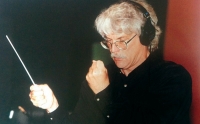
Jay Chattaway is an American composer of film and television scores. He is mainly known for his work as composer for several Star Trek television series: Star Trek: The Next Generation, Star Trek: Deep Space Nine, Star Trek: Voyager, and Star Trek: Enterprise.
Carl Philipp Emanuel Bach
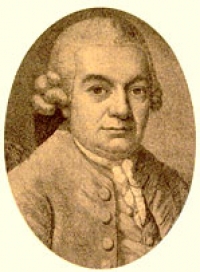
Carl Philipp Emanuel Bach (8 March 1714 – 14 December 1788) was a German musician and composer, the second of three sons of Johann Sebastian Bach and Maria Barbara Bach. He was a crucial composer in the transition between the Baroque and Classical periods, and one of the founders of the Classical style, composing in the Rococo and Classical periods. His second name was given in honor of Georg Philipp Telemann, a friend of Emanuel's father and his godfather.
Through the latter half of the 18th century, the reputation of Emanuel Bach stood very high. Wolfgang Amadeus Mozart said of him, "He is the father, we are the children." The best part of Joseph Haydn's training was derived from a study of his work. Ludwig van Beethoven expressed for his genius the most cordial admiration and regard. This position he owes mainly to his keyboard sonatas, which mark an important epoch in the history of musical form. Lucid in style, delicate and tender in expression, they are even more notable for the freedom and variety of their structural design; they break away altogether from both the Italian and the Viennese schools, moving instead toward the cyclical and improvisatory forms that would become common several generations later.
The content of his work is full of invention and, most importantly, extreme unpredictability, and wide emotional range even within a single work, a style that may be categorised as Empfindsamer Stil. It is no less sincere in thought than polished and felicitous in phrase. He was probably the first composer of eminence who made free use of harmonic colour for its own sake since the time of Lassus, Monteverdi, and Gesualdo. In this way, he compares well with the most important representatives of the First Viennese School. In fact he exerted enormous influence on the North German School of composers, in particular Georg Anton Benda, Bernhard Joachim Hagen, Ernst Wilhelm Wolf, Johann Gottfried Müthel, Friedrich Wilhelm Rust and many others. His influence was not limited to his contemporaries, and extended to Felix Mendelssohn and Carl Maria von Weber.
Through the latter half of the 18th century, the reputation of Emanuel Bach stood very high. Wolfgang Amadeus Mozart said of him, "He is the father, we are the children." The best part of Joseph Haydn's training was derived from a study of his work. Ludwig van Beethoven expressed for his genius the most cordial admiration and regard. This position he owes mainly to his keyboard sonatas, which mark an important epoch in the history of musical form. Lucid in style, delicate and tender in expression, they are even more notable for the freedom and variety of their structural design; they break away altogether from both the Italian and the Viennese schools, moving instead toward the cyclical and improvisatory forms that would become common several generations later.
The content of his work is full of invention and, most importantly, extreme unpredictability, and wide emotional range even within a single work, a style that may be categorised as Empfindsamer Stil. It is no less sincere in thought than polished and felicitous in phrase. He was probably the first composer of eminence who made free use of harmonic colour for its own sake since the time of Lassus, Monteverdi, and Gesualdo. In this way, he compares well with the most important representatives of the First Viennese School. In fact he exerted enormous influence on the North German School of composers, in particular Georg Anton Benda, Bernhard Joachim Hagen, Ernst Wilhelm Wolf, Johann Gottfried Müthel, Friedrich Wilhelm Rust and many others. His influence was not limited to his contemporaries, and extended to Felix Mendelssohn and Carl Maria von Weber.
Antonio Capuzzi
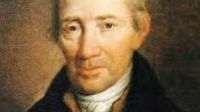
Giuseppe Antonio Capuzzi was an Italian violinist and composer. Although popular on the day, most of his music is now forgotten. The most played piece today is his concerto for double bass. The concert was held at the British Museum and dedicated to Kavalier Marcantonio Montenigo, who is believed to have done it.
Michael Buble

Michael Steven Bublé (born 9 September 1975) is a Canadian big band singer. He won several awards, including a Grammy and multiple Juno Awards. While achieving modest chart success in the United States, his 2003 self-titled album has reached the top ten in Lebanon, the UK and his home country. However, he did find commercial success in the U.S. with his 2005 album It's Time. He has sold over 18 million albums. Michael has also appeared on the TV series Rove four times.
The album Michael Bublé was released by Warner Bros. Records just before Valentine's Day in 2003. The album was actually first released by the Warner company in South Africa, where the album went into the Top 5 and was certified Gold. Soon after that, it entered the Canadian album charts. As success in the USA was marginal at best, Bublé started visiting countries all over the world, with the album being successful in places like the Philippines and Singapore. He then moved on to placed like Italy and eventually had chart success in the UK, U.S., Australia and elsewhere soon followed with the album going Platinum and reaching the top ten of the album charts in the UK and Canada and going all the way to #1 in Australia. The album has reached the top 50 of the Billboard 200 album charts in the U.S. His version of George Michael's "Kissing a Fool" was released as a single from the album and reached the top 30 of the Billboard Hot Adult Contemporary Tracks chart. "How Can You Mend a Broken Heart?" reached the top 30 of the Billboard Adult Contemporary chart as well. His third single "Sway" also reached the top 30 of the Adult Contemporary chart, while a Junkie XL remix of the song reached the top 20 in Australia in May 2004.
Bublé's second studio album, It's Time, debuted as a hugely successful performance. The album reached number 7 on the Billboard 200 album chart and number 2 on the ARIA Album Charts in Australia. It's Time also debuted at number 4 on the UK Album Charts. The album features covers of Beatles and Ray Charles songs, and the hit single "Home".
The album Michael Bublé was released by Warner Bros. Records just before Valentine's Day in 2003. The album was actually first released by the Warner company in South Africa, where the album went into the Top 5 and was certified Gold. Soon after that, it entered the Canadian album charts. As success in the USA was marginal at best, Bublé started visiting countries all over the world, with the album being successful in places like the Philippines and Singapore. He then moved on to placed like Italy and eventually had chart success in the UK, U.S., Australia and elsewhere soon followed with the album going Platinum and reaching the top ten of the album charts in the UK and Canada and going all the way to #1 in Australia. The album has reached the top 50 of the Billboard 200 album charts in the U.S. His version of George Michael's "Kissing a Fool" was released as a single from the album and reached the top 30 of the Billboard Hot Adult Contemporary Tracks chart. "How Can You Mend a Broken Heart?" reached the top 30 of the Billboard Adult Contemporary chart as well. His third single "Sway" also reached the top 30 of the Adult Contemporary chart, while a Junkie XL remix of the song reached the top 20 in Australia in May 2004.
Bublé's second studio album, It's Time, debuted as a hugely successful performance. The album reached number 7 on the Billboard 200 album chart and number 2 on the ARIA Album Charts in Australia. It's Time also debuted at number 4 on the UK Album Charts. The album features covers of Beatles and Ray Charles songs, and the hit single "Home".
The Village People
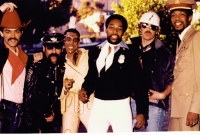
Village People is a concept disco group formed in the late 1970s, well known for their on-stage costumes as well as their catchy tunes and suggestive lyrics. Original members were: Victor Willis (police officer), Felipe Rose (American Indian chief), Randy Jones (cowboy), Glenn Hughes (biker), David Hodo (construction worker) and Alex Briley (Military man). For the release of "In the Navy", Willis and Briley appeared as an admiral and a sailor, respectively. Originally created to target disco's primarily gay audience by featuring stereotypical gay fantasy personas, the band's popularity quickly brought them into mainstream.
Village People scored a number of disco and dance hits, including their trademark "Macho Man", "Go West", the classic club medley of "San Francisco (You've Got Me) / In Hollywood (Everybody is a Star)", "In the Navy", "Can't Stop the Music", and their biggest hit, "Y.M.C.A.".
In September, 2008 the group received a star on the Hollywood Walk of Fame. They have sold upwards of 50 million records world-wide.
Village People scored a number of disco and dance hits, including their trademark "Macho Man", "Go West", the classic club medley of "San Francisco (You've Got Me) / In Hollywood (Everybody is a Star)", "In the Navy", "Can't Stop the Music", and their biggest hit, "Y.M.C.A.".
In September, 2008 the group received a star on the Hollywood Walk of Fame. They have sold upwards of 50 million records world-wide.
Hector Berlioz
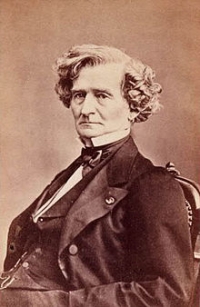
Hector Berlioz (December 11, 1803 – March 8, 1869) was a French Romantic composer, best known for his compositions Symphonie fantastique and Grande messe des morts (Requiem). Berlioz made significant contributions to the modern orchestra with his Treatise on Instrumentation. He specified huge orchestral forces for some of his works; as a conductor, he performed several concerts with more than 1,000 musicians. He also composed around 50 songs. His influence was critical for the further development of Romanticism, especially in composers like Richard Wagner, Nikolai Rimsky-Korsakov, Franz Liszt, Richard Strauss, Gustav Mahler and many others.
Jean Sibelius

Jean Sibelius ( pronunciation (help·info)) (8 December 1865 – 20 September 1957) was a Finnish composer of the later Romantic period whose music played an important role in the formation of the Finnish national identity. His mastery of the orchestra has been described as "prodigious."
The core of Sibelius's oeuvre is his set of seven symphonies. Like Beethoven, Sibelius used each successive work to further develop his own personal compositional style. His works continue to be performed frequently in the concert hall and are often recorded.
In addition to the symphonies, Sibelius's best-known compositions include Finlandia, the Karelia Suite, Valse triste, the Violin Concerto in D minor and The Swan of Tuonela (one of the four movements of the Lemminkäinen Suite). Other works include pieces inspired by the Finnish national epic, the Kalevala; over 100 songs for voice and piano; incidental music for 13 plays; the opera Jungfrun i tornet (The Maiden in the Tower); chamber music; piano music; Masonic ritual music; and 21 separate publications of choral music.
The core of Sibelius's oeuvre is his set of seven symphonies. Like Beethoven, Sibelius used each successive work to further develop his own personal compositional style. His works continue to be performed frequently in the concert hall and are often recorded.
In addition to the symphonies, Sibelius's best-known compositions include Finlandia, the Karelia Suite, Valse triste, the Violin Concerto in D minor and The Swan of Tuonela (one of the four movements of the Lemminkäinen Suite). Other works include pieces inspired by the Finnish national epic, the Kalevala; over 100 songs for voice and piano; incidental music for 13 plays; the opera Jungfrun i tornet (The Maiden in the Tower); chamber music; piano music; Masonic ritual music; and 21 separate publications of choral music.
John Mackey
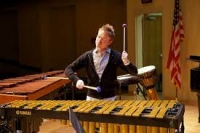
John Mackey (born October 1, 1973) is an American composer of contemporary classical music, with an emphasis on music for wind band, as well as orchestra. For several years, he focused on music for modern dance and ballet.John Mackey was born in New Philadelphia, Ohio and grew up in Westerville, Ohio, where he attended Westerville South High School. Though musicians themselves, Mackey's parents did not provide him with music lessons, and he never formally studied an instrument. His grandfather, however, taught him to read music and introduced him to digital music notation.
Sean Mortensen

I'm an aspiring composer, well-to-do pianist and percussionist. I'm even bilingual in Spanish, Italian and Portuguese (I'm almost a Jack of All Trades).
Sammy Nestico
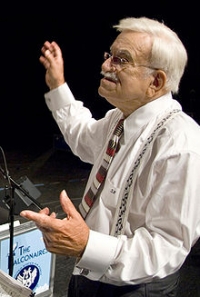
Samuel "Sammy" Louis Nestico (born February 6, 1924 in Pittsburgh, Pennsylvania) is a prolific and well known composer and arranger of big band music. Nestico is most known for his arrangements for the Count Basie orchestra.
The Beatles

The Beatles were a pop and rock group from Liverpool, England formed in 1960. Primarily consisting of John Lennon (rhythm guitar, vocals), Paul McCartney (bass guitar, vocals), George Harrison (lead guitar, vocals) and Ringo Starr (drums, vocals) throughout their career, The Beatles are recognised for leading the mid-1960s musical "British Invasion" into the United States. Although their initial musical style was rooted in 1950s rock and roll and homegrown skiffle, the group explored genres ranging from Tin Pan Alley to psychedelic rock. Their clothes, styles, and statements made them trend-setters, while their growing social awareness saw their influence extend into the social and cultural revolutions of the 1960s. After the band broke up in 1970, all four members embarked upon solo careers.
The Beatles are one of the most commercially successful and critically acclaimed bands in the history of popular music, selling over a billion records internationally. In the United Kingdom, The Beatles released more than 40 different singles, albums, and EPs that reached number one, earning more number one albums (15) than any other group in UK chart history. This commercial success was repeated in many other countries; their record company, EMI, estimated that by 1985 they had sold over one billion records worldwide. According to the Recording Industry Association of America, The Beatles have sold more albums in the United States than any other band. In 2004, Rolling Stone magazine ranked The Beatles number one on its list of 100 Greatest Artists of All Time. According to that same magazine, The Beatles' innovative music and cultural impact helped define the 1960s, and their influence on pop culture is still evident today. In 2008, Billboard magazine released a list of top-selling Hot 100 artists to celebrate the chart's fiftieth anniversary; The Beatles reached #1 again.
The Beatles are one of the most commercially successful and critically acclaimed bands in the history of popular music, selling over a billion records internationally. In the United Kingdom, The Beatles released more than 40 different singles, albums, and EPs that reached number one, earning more number one albums (15) than any other group in UK chart history. This commercial success was repeated in many other countries; their record company, EMI, estimated that by 1985 they had sold over one billion records worldwide. According to the Recording Industry Association of America, The Beatles have sold more albums in the United States than any other band. In 2004, Rolling Stone magazine ranked The Beatles number one on its list of 100 Greatest Artists of All Time. According to that same magazine, The Beatles' innovative music and cultural impact helped define the 1960s, and their influence on pop culture is still evident today. In 2008, Billboard magazine released a list of top-selling Hot 100 artists to celebrate the chart's fiftieth anniversary; The Beatles reached #1 again.
Ludwig van Beethoven

Ludwig van Beethoven (/ˈlʊdvɪɡ væn ˈbeɪt(h)oʊvən/ (About this soundlisten); German: (About this soundlisten); baptised 17 December 1770 – 26 March 1827) was a German composer and pianist. A crucial figure in the transition between the classical and romantic eras in classical music, he remains one of the most recognized and influential musicians of this period, and is considered to be one of the greatest composers of all time.
Beethoven was born in Bonn, the capital of the Electorate of Cologne, and part of the Holy Roman Empire. He displayed his musical talents at an early age and was vigorously taught by his father Johann van Beethoven, and was later taught by composer and conductor Christian Gottlob Neefe. At age 21, he moved to Vienna and studied composition with Joseph Haydn. Beethoven then gained a reputation as a virtuoso pianist, and was soon courted by Prince Lichnowsky for compositions, which resulted in Opus 1 in 1795.
Beethoven was born in Bonn, the capital of the Electorate of Cologne, and part of the Holy Roman Empire. He displayed his musical talents at an early age and was vigorously taught by his father Johann van Beethoven, and was later taught by composer and conductor Christian Gottlob Neefe. At age 21, he moved to Vienna and studied composition with Joseph Haydn. Beethoven then gained a reputation as a virtuoso pianist, and was soon courted by Prince Lichnowsky for compositions, which resulted in Opus 1 in 1795.
Zequinha de Abreu
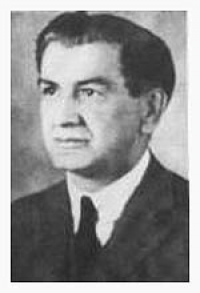
José Gomes de Abreu, better known as Zequinha de Abreu (September 19, 1880 — January 22, 1935), was a Brazilian musician and composer who in 1917 wrote the famous choro tune "Tico-Tico no Fubá" (whose original title was "Tico-Tico no Farelo"). Other well-known tunes he wrote were "Branca" and "Tardes de Lindóia."
Brahms

Johannes Brahms (May 7, 1833 â April 3, 1897) was a German composer of the Romantic period. He was born in Hamburg and in his later years he settled in Vienna, Austria.
Brahms maintained a Classical sense of form and order in his works â in contrast to the opulence of the music of many of his contemporaries. Thus many admirers (though not necessarily Brahms himself) saw him as the champion of traditional forms and "pure music," as opposed to the New German embrace of program music.
Brahms venerated Beethoven: in the composer's home, a marble bust of Beethoven looked down on the spot where he composed, and some passages in his works are reminiscent of Beethoven's style. The main theme of the finale of Brahms's First Symphony is reminiscent of the main theme of the finale of Beethoven's Ninth, and when this resemblance was pointed out to Brahms he replied that any ass â jeder Esel â could see that.
Ein deutsches Requiem was partially inspired by his mother's death in 1865, but also incorporates material from a Symphony he started in 1854, but abandoned following Schumann's suicide attempt. He once wrote that the Requiem "belonged to Schumann". The first movement of this abandoned Symphony was re-worked as the first movement of the First Piano Concerto.
Brahms also loved the Classical composers Mozart and Haydn. He collected first editions and autographs of their works, and edited performing editions. He also studied the music of pre-classical composers, including Giovanni Gabrieli, Johann Adolph Hasse, Heinrich Schütz and especially Johann Sebastian Bach. His friends included leading musicologists, and with Friedrich Chrysander he edited an edition of the works of François Couperin. He looked to older music for inspiration in the arts of strict counterpoint; the themes of some of his works are modelled on Baroque sources, such as Bach's The Art of Fugue in the fugal finale of Cello Sonata No. 1, or the same composer's Cantata No. 150 in the passacaglia theme of the Fourth Symphony's finale.
Brahms maintained a Classical sense of form and order in his works â in contrast to the opulence of the music of many of his contemporaries. Thus many admirers (though not necessarily Brahms himself) saw him as the champion of traditional forms and "pure music," as opposed to the New German embrace of program music.
Brahms venerated Beethoven: in the composer's home, a marble bust of Beethoven looked down on the spot where he composed, and some passages in his works are reminiscent of Beethoven's style. The main theme of the finale of Brahms's First Symphony is reminiscent of the main theme of the finale of Beethoven's Ninth, and when this resemblance was pointed out to Brahms he replied that any ass â jeder Esel â could see that.
Ein deutsches Requiem was partially inspired by his mother's death in 1865, but also incorporates material from a Symphony he started in 1854, but abandoned following Schumann's suicide attempt. He once wrote that the Requiem "belonged to Schumann". The first movement of this abandoned Symphony was re-worked as the first movement of the First Piano Concerto.
Brahms also loved the Classical composers Mozart and Haydn. He collected first editions and autographs of their works, and edited performing editions. He also studied the music of pre-classical composers, including Giovanni Gabrieli, Johann Adolph Hasse, Heinrich Schütz and especially Johann Sebastian Bach. His friends included leading musicologists, and with Friedrich Chrysander he edited an edition of the works of François Couperin. He looked to older music for inspiration in the arts of strict counterpoint; the themes of some of his works are modelled on Baroque sources, such as Bach's The Art of Fugue in the fugal finale of Cello Sonata No. 1, or the same composer's Cantata No. 150 in the passacaglia theme of the Fourth Symphony's finale.
Borodin

Alexander Porfiryevich Borodin (12 November 1833 – 27 February 1887) was a Russian Romantic composer and chemist of Georgian–Russian parentage. He was a member of the group of composers called The Five (or "The Mighty Handful"), who were dedicated to producing a specifically Russian kind of art music. He is best known for his symphonies, his two string quartets, and his opera Prince Igor. Music from Prince Igor and his string quartets was later adapted for the musical Kismet.
Angela Aki

Kiyomi Angela Aki (安藝 聖世美 アンジェラ, Aki Kiyomi Anjera, born September 15, 1977) known professionally as Angela Aki (アンジェラ・アキ, Anjera Aki), is a pop singer, songwriter and pianist.Aki was born in the small town of Itano in Tokushima Prefecture, in the mostly rural island of Shikoku. Her mother is Italian American and her father is Japanese.
Aki began to take piano lessons when she was three years old and lived in Tokushima through sixth grade and spent her junior high school days in Okayama. She has admitted that growing up in rural Japan proved very difficult, as she was bullied and she turned to the piano as an escape from the isolation she felt. She grew up listening to a mix of enka, The Carpenters and The Bee Gees.
Aki began to take piano lessons when she was three years old and lived in Tokushima through sixth grade and spent her junior high school days in Okayama. She has admitted that growing up in rural Japan proved very difficult, as she was bullied and she turned to the piano as an escape from the isolation she felt. She grew up listening to a mix of enka, The Carpenters and The Bee Gees.
Bukas Palad

The Bukas Palad Music Ministry (Filipino for "generous"; literally, "open palm") is a Roman Catholic, contemporary worship musical group in the Philippines that composes, records, and performs original religious music. Since 1986, Bukas Palad has recorded over a dozen albums with the Jesuit Music Ministry of Jesuit Communications Foundation, a ministry of the Philippine Province of the Society of Jesus, based in Ateneo de Manila University. The group has performed in over a hundred solo concerts across the country and overseas in Japan, Hong Kong, the United States, and Canada.
GEORG PHILLIP TELEMANN
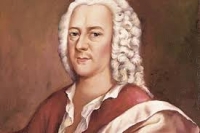
Georg Philipp Telemann (24 March 1681 – 25 June 1767) (German pronunciation: ) was a German Baroque composer and multi-instrumentalist. Almost completely self-taught in music, he became a composer against his family's wishes. After studying in Magdeburg, Zellerfeld, and Hildesheim, Telemann entered the University of Leipzig to study law, but eventually settled on a career in music. He held important positions in Leipzig, Sorau, Eisenach, and Frankfurt before settling in Hamburg in 1721, where he became musical director of that city's five main churches. While Telemann's career prospered, his personal life was always troubled: his first wife died less than two years after their marriage, and his second wife had extramarital affairs and accumulated a large gambling debt before leaving him.
Felix Mendelssohn

Jakob Ludwig Felix Mendelssohn Bartholdy, born, and generally known in English-speaking countries, as Felix Mendelssohn (February 3, 1809 – November 4, 1847) was a German composer, pianist, organist and conductor of the early Romantic period.
The grandson of the philosopher Moses Mendelssohn, he was born into a notable Jewish family, although he himself was brought up initially without religion, and later as a Lutheran. He was recognized early as a musical prodigy, but his parents were cautious and did not seek to capitalise on his abilities. Indeed his father was disinclined to allow Felix to follow a musical career until it became clear that he intended to seriously dedicate himself to it.
Early success in Germany was followed by travel throughout Europe; Mendelssohn was particularly well received in England as a composer, conductor and soloist, and his ten visits there, during which many of his major works were premiered, form an important part of his adult career. His essentially conservative musical tastes however set him apart from many of his more adventurous musical contemporaries such as Liszt, Wagner and Berlioz. The Conservatory he founded at Leipzig became a bastion of this anti-radical outlook.
Mendelssohn's work includes symphonies, concerti, oratorios, piano and chamber music. He also had an important role in the revival of interest in the music of Johann Sebastian Bach. After a long period of relative denigration due to changing musical tastes and antisemitism in the late 19th and early 20th centuries, his creative originality is now being recognized and re-evaluated. He is now among the most popular composers of the Romantic era.
The grandson of the philosopher Moses Mendelssohn, he was born into a notable Jewish family, although he himself was brought up initially without religion, and later as a Lutheran. He was recognized early as a musical prodigy, but his parents were cautious and did not seek to capitalise on his abilities. Indeed his father was disinclined to allow Felix to follow a musical career until it became clear that he intended to seriously dedicate himself to it.
Early success in Germany was followed by travel throughout Europe; Mendelssohn was particularly well received in England as a composer, conductor and soloist, and his ten visits there, during which many of his major works were premiered, form an important part of his adult career. His essentially conservative musical tastes however set him apart from many of his more adventurous musical contemporaries such as Liszt, Wagner and Berlioz. The Conservatory he founded at Leipzig became a bastion of this anti-radical outlook.
Mendelssohn's work includes symphonies, concerti, oratorios, piano and chamber music. He also had an important role in the revival of interest in the music of Johann Sebastian Bach. After a long period of relative denigration due to changing musical tastes and antisemitism in the late 19th and early 20th centuries, his creative originality is now being recognized and re-evaluated. He is now among the most popular composers of the Romantic era.
Margriet Verbeek
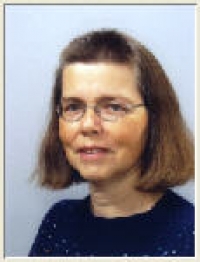
Was born in 1957 in Leiderdorp (The Netherlands), studied
classical guitar with Baltazar Benitez at the Brabant Academy for
Music, and composition with Jan van Dijk in Tilburg (The Netherlands)
classical guitar with Baltazar Benitez at the Brabant Academy for
Music, and composition with Jan van Dijk in Tilburg (The Netherlands)
Bach

Johann Sebastian Bach (31 March 1685 – 28 July 1750) was a German composer and organist whose sacred and secular works for choir, orchestra, and solo instruments drew together the strands of the Baroque period and brought it to its ultimate maturity. Although he introduced no new forms, he enriched the prevailing German style with a robust contrapuntal technique, an unrivalled control of harmonic and motivic organisation in composition for diverse musical forces, and the adaptation of rhythms and textures from abroad, particularly Italy and France.
Revered for their intellectual depth and technical and artistic beauty, Bach's works include the Brandenburg concertos; the Goldberg Variations; the English Suites, French Suites, Partitas, and Well-Tempered Clavier; the Mass in B Minor; the St. Matthew Passion; the St. John Passion; The Musical Offering; The Art of Fugue; the Sonatas and Partitas for violin solo; the Cello Suites; more than 200 surviving cantatas; and a similar number of organ works, including the celebrated Toccata and Fugue in D Minor.
While Bach's fame as an organist was great during his lifetime, he was not particularly well-known as a composer. His adherence to Baroque forms and contrapuntal style was considered "old-fashioned" by his contemporaries, especially late in his career when the musical fashion tended towards Rococo and later Classical styles. A revival of interest and performances of his music began early in the 19th century, and he is now widely considered to be one of the greatest composers in the Western tradition.
Revered for their intellectual depth and technical and artistic beauty, Bach's works include the Brandenburg concertos; the Goldberg Variations; the English Suites, French Suites, Partitas, and Well-Tempered Clavier; the Mass in B Minor; the St. Matthew Passion; the St. John Passion; The Musical Offering; The Art of Fugue; the Sonatas and Partitas for violin solo; the Cello Suites; more than 200 surviving cantatas; and a similar number of organ works, including the celebrated Toccata and Fugue in D Minor.
While Bach's fame as an organist was great during his lifetime, he was not particularly well-known as a composer. His adherence to Baroque forms and contrapuntal style was considered "old-fashioned" by his contemporaries, especially late in his career when the musical fashion tended towards Rococo and later Classical styles. A revival of interest and performances of his music began early in the 19th century, and he is now widely considered to be one of the greatest composers in the Western tradition.
Johann Strauss Jr.
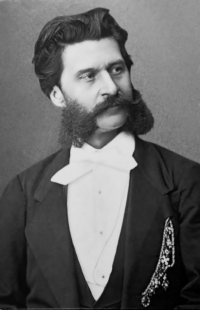
Johann Strauss II (born Johann Baptist Strauss; 25 October 1825 – 3 June 1899), also known as Johann Strauss Jr., the Younger, the Son (German: Sohn), son of Johann Strauss I, was an Austrian composer of light music, particularly dance music and operettas. He composed over 500 waltzes, polkas, quadrilles, and other types of dance music, as well as several operettas and a ballet. In his lifetime, he was known as "The Waltz King", and was largely responsible for the popularity of the waltz in Vienna during the 19th century. Some of Johann Strauss's most famous works include "The Blue Danube", "Kaiser-Walzer" (Emperor Waltz), "Tales from the Vienna Woods", and the "Tritsch-Tratsch-Polka". Among his operettas, Die Fledermaus and Der Zigeunerbaron are the best known.
Eduardo Rios
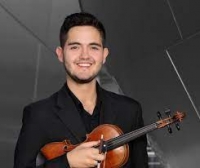
Twenty-one-year old violinist Eduardo Rios is the winner of the 2015 Sphinx Competition. Born and raised in Lima, Peru, Mr. Rios enjoys performing as soloist, chamber musician and orchestra concertmaster. Since his solo debut at age fourteen with the National Symphony Orchestra of Peru, Mr.
Johan Agrell
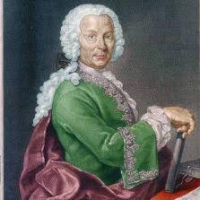
Johan Joachim Agrell (1 February 1701 – 19 January 1765) was a late German/Swedish baroque composer.He was born in Löth parish, Memming district, Östergötland, a province in Sweden, and studied in Uppsala. By 1734 he was a violinist at the Kassel court, travelling in England, France, Italy, and elsewhere. From 1746 onward, he was Kapellmeister in Nuremberg.
Eyvind Alnæs
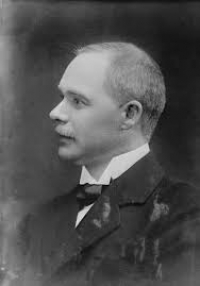
Eyvind Alnæs (29 April 1872 – 24 December 1932) was a Norwegian composer, pianist, organist and choir director.Alnæs was born in Fredrikstad, as the son of headmaster Johannes Jørgen Lauritz Alnæs (1835–1916) and Elise Martine Hansen (1851–1931). He married Emilie Thorne (1882–1976) in 1903. He was the father of author Lise Børsum, and grandfather of novelist Finn Alnæs and artist Bente Børsum.
Eugène Bozza
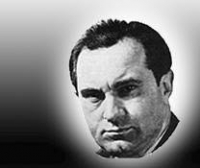
Eugène Joseph Bozza was a French composer and violinist. He remains one of the most prolific composers of chamber music for wind instruments. Bozza’s large ensemble work includes five symphonies, operas, ballets, large choral work, wind band music, concertos, and much work for large brass or woodwind ensembles.
Kenneth J. Alford
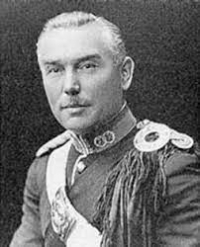
Frederick Joseph Ricketts was an English composer of marches for band. Under the pen name Kenneth J. Alford, he composed marches which are considered to be great examples of the art. He was a Bandmaster in the British Army, and Royal Marines Director of Music.
Michael Jackson

Michael Joseph Jackson (August 29, 1958 – June 25, 2009) was an American singer, dancer and entertainer. Referred to as the King of Pop, he is the most commercially successful entertainer of all time, and one of the most influential. His contributions to music, dance and fashion, along with a much publicized personal life, made him a global figure in popular culture for over four decades.
Alongside his brothers, he made his debut as lead singer and youngest member of The Jackson 5 in 1964. He began his solo career in 1971. His 1982 album Thriller remains the best-selling album ever, with Off the Wall (1979), Bad (1987), Dangerous (1991) and HIStory (1995) also among the world's best-selling albums. He is widely credited with having transformed the music video from a promotional tool into an art form with videos for his songs such as "Billie Jean", "Beat It" and "Thriller" making him the first African American artist to amass a strong crossover following on MTV. With stage performances and music videos, Jackson popularized a number of physically complicated dance techniques, such as the robot and the moonwalk. His distinctive musical sound, vocal style, and choreography, is credited with stretching across and breaking down cultural, racial, economic, generational, and global barriers that has inspired countless pop, rock, R&B and hip hop artists.
One of the few artists to have been inducted into the Rock and Roll Hall of Fame twice, his other achievements feature multiple Guinness World Records—including the "Most Successful Entertainer of All Time"—15 Grammy Awards (including the "Living Legend Award" and the "Lifetime Achievement Award"), 26 American Music Awards (24 only as a solo artist, including one for "Artist of the Century")—more than any artist—, 17 number one singles in the US (including the four as a member of the Jackson 5), and estimated sales of up to 750 million records worldwide making him the world's best selling artist in history.
Jackson's personal relationships and life generated controversy for years. His changing appearance was noticed from the late 1970s onwards, with changes to his nose and to the color of his skin drawing media publicity. He was accused of child sexual abuse in 1993 though no charges were brought, and in 2005 he was tried and acquitted when the jury ruled him not guilty on all charges. He married twice, first in 1994 and again in 1996, and brought up three children, one born to a surrogate mother. While preparing for the This Is It concert tour in 2009, Jackson died at the age of 50 after suffering from cardiac arrest. He reportedly had been administered drugs such as propofol and lorazepam, and his death was ruled a homicide by the Los Angeles County coroner. His death triggered an outpouring of grief from around the world with his globally live broadcast memorial service attracting an audience of up to one billion people; as well as a huge surge in his album sales, resulting in him becoming the best selling artist of 2009 with sales in excess of 8.2 million in the United States where he became the first artist ever to have 4 of the top 20 best-selling albums in a single year, and 29 million albums globally, where he had an unprecedented 8 of the top 25 best-selling albums worldwide.
Alongside his brothers, he made his debut as lead singer and youngest member of The Jackson 5 in 1964. He began his solo career in 1971. His 1982 album Thriller remains the best-selling album ever, with Off the Wall (1979), Bad (1987), Dangerous (1991) and HIStory (1995) also among the world's best-selling albums. He is widely credited with having transformed the music video from a promotional tool into an art form with videos for his songs such as "Billie Jean", "Beat It" and "Thriller" making him the first African American artist to amass a strong crossover following on MTV. With stage performances and music videos, Jackson popularized a number of physically complicated dance techniques, such as the robot and the moonwalk. His distinctive musical sound, vocal style, and choreography, is credited with stretching across and breaking down cultural, racial, economic, generational, and global barriers that has inspired countless pop, rock, R&B and hip hop artists.
One of the few artists to have been inducted into the Rock and Roll Hall of Fame twice, his other achievements feature multiple Guinness World Records—including the "Most Successful Entertainer of All Time"—15 Grammy Awards (including the "Living Legend Award" and the "Lifetime Achievement Award"), 26 American Music Awards (24 only as a solo artist, including one for "Artist of the Century")—more than any artist—, 17 number one singles in the US (including the four as a member of the Jackson 5), and estimated sales of up to 750 million records worldwide making him the world's best selling artist in history.
Jackson's personal relationships and life generated controversy for years. His changing appearance was noticed from the late 1970s onwards, with changes to his nose and to the color of his skin drawing media publicity. He was accused of child sexual abuse in 1993 though no charges were brought, and in 2005 he was tried and acquitted when the jury ruled him not guilty on all charges. He married twice, first in 1994 and again in 1996, and brought up three children, one born to a surrogate mother. While preparing for the This Is It concert tour in 2009, Jackson died at the age of 50 after suffering from cardiac arrest. He reportedly had been administered drugs such as propofol and lorazepam, and his death was ruled a homicide by the Los Angeles County coroner. His death triggered an outpouring of grief from around the world with his globally live broadcast memorial service attracting an audience of up to one billion people; as well as a huge surge in his album sales, resulting in him becoming the best selling artist of 2009 with sales in excess of 8.2 million in the United States where he became the first artist ever to have 4 of the top 20 best-selling albums in a single year, and 29 million albums globally, where he had an unprecedented 8 of the top 25 best-selling albums worldwide.
Huwei Huang
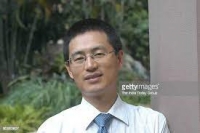
Huang Huwei composer recordings composed: Computer Science and Engineering from the University of Aizu (Japan).
Prokofiev

Sergei Sergeyevich Prokofiev (Russian: Сергей Сергеевич Прокофьев; Ukrainian: Сергій Сергійович Прокоф'єв) (27 April 1891 – 5 March 1953) was a Russian composer, pianist and conductor who mastered numerous musical genres and came to be admired as one of the greatest composers of the 20th century.
Prokofiev was a soloist with the London Symphony Orchestra, conducted by Piero Coppola, in the first recording of his Piano Concerto No. 3, recorded in London by His Master's Voice in June 1932. Prokofiev also recorded some of his solo piano music for HMV in Paris in February 1935; these recordings were issued on CD by Pearl and Naxos. In 1938, he conducted the Moscow Philharmonic Orchestra in a recording of the second suite from his Romeo and Juliet ballet; this performance was also later released on LP and CD. Another reported recording with Prokofiev and the Moscow Philharmonic was of the First Violin Concerto with David Oistrakh as soloist; Everest Records later released this recording on an LP.
Prokofiev was a soloist with the London Symphony Orchestra, conducted by Piero Coppola, in the first recording of his Piano Concerto No. 3, recorded in London by His Master's Voice in June 1932. Prokofiev also recorded some of his solo piano music for HMV in Paris in February 1935; these recordings were issued on CD by Pearl and Naxos. In 1938, he conducted the Moscow Philharmonic Orchestra in a recording of the second suite from his Romeo and Juliet ballet; this performance was also later released on LP and CD. Another reported recording with Prokofiev and the Moscow Philharmonic was of the First Violin Concerto with David Oistrakh as soloist; Everest Records later released this recording on an LP.
Astor Piazzolla

Ástor Pantaleón Piazzolla (March 11, 1921 – July 4, 1992) was an Argentine tango composer and bandoneón player. His oeuvre revolutionized the traditional tango into a new style termed nuevo tango, incorporating elements from jazz and classical music. An excellent bandoneonist, he regularly performed his own compositions with different ensembles.
Piazzolla's nuevo tango was distinct from the traditional tango in its incorporation of elements of jazz, its use of extended harmonies and dissonance, its use of counterpoint, and its ventures into extended compositional forms. As Argentine psychoanalyst Carlos Kuri has pointed out, Piazzolla's fusion of tango with this wide range of other recognizable Western musical elements was so successful that it produced a new individual style transcending these influences. It is precisely this success, and individuality, that makes it hard to pin down where particular influences reside in his compositions, but some aspects are clear. The use of the passacaglia technique of a circulating bass line and harmonic sequence, invented and much used in 17th and 18th century baroque music but also central to the idea of jazz "changes", predominates in most of Piazzolla's mature compositions. Another clear reference to the baroque is the often complex and virtuosic counterpoint that sometimes follows strict fugal behavior but more often simply allows each performer in the group to assert his voice. A further technique that emphasises this sense of democracy and freedom among the musicians is improvisation that is borrowed from jazz in concept, but in practice involves a different vocabulary of scales and rhythms that stay within the parameters of the established tango sound-world. Pablo Ziegler has been particularly responsible for developing this aspect of the style both within Piazzolla's groups and since the composer's death.
Piazzolla's nuevo tango was distinct from the traditional tango in its incorporation of elements of jazz, its use of extended harmonies and dissonance, its use of counterpoint, and its ventures into extended compositional forms. As Argentine psychoanalyst Carlos Kuri has pointed out, Piazzolla's fusion of tango with this wide range of other recognizable Western musical elements was so successful that it produced a new individual style transcending these influences. It is precisely this success, and individuality, that makes it hard to pin down where particular influences reside in his compositions, but some aspects are clear. The use of the passacaglia technique of a circulating bass line and harmonic sequence, invented and much used in 17th and 18th century baroque music but also central to the idea of jazz "changes", predominates in most of Piazzolla's mature compositions. Another clear reference to the baroque is the often complex and virtuosic counterpoint that sometimes follows strict fugal behavior but more often simply allows each performer in the group to assert his voice. A further technique that emphasises this sense of democracy and freedom among the musicians is improvisation that is borrowed from jazz in concept, but in practice involves a different vocabulary of scales and rhythms that stay within the parameters of the established tango sound-world. Pablo Ziegler has been particularly responsible for developing this aspect of the style both within Piazzolla's groups and since the composer's death.
 Sheet Music Drive is a web site for those who wants to access popular sheet music easily,
letting them download the sheet music for free for trial purposes.
It's completely free to download and try the listed sheet music, but you have to delete the files after 24 hours of trial period.
Don't forget, if you like the piece of music you have just learned playing,
treat the artist with respect, and go buy the original sheet music.
Sheet Music Drive is a web site for those who wants to access popular sheet music easily,
letting them download the sheet music for free for trial purposes.
It's completely free to download and try the listed sheet music, but you have to delete the files after 24 hours of trial period.
Don't forget, if you like the piece of music you have just learned playing,
treat the artist with respect, and go buy the original sheet music.
